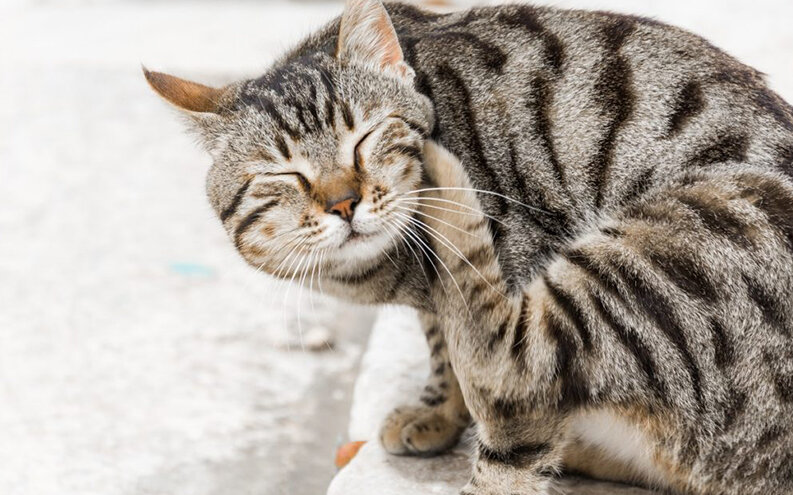Like most other animals, cats can have dry skin. Although dry skin doesn't seem like a critical cat concern, the state of their skin is a good indicator of your cat's overall health. So if your kitty has flakey skin, is scratching frequently, has hair loss, or is excessively grooming - it's time to look into the state of their skin.
It may take a little detective work to figure out why your cat has dry skin. Make sure your cat doesn't have fleas, even indoor cats can get them. Secondly, have your vet rule out any medical reasons such as thyroid, kidney, or heart disease.
One of the most common causes of parched kitty skin is food allergies. If you think this is your cat's problem a diet change might solve it. Choose food that is high-quality, preferably a wet food that contains Omega 3 fatty acids. Commercial cat food may not have enough protein for your cat so choose wisely or add some protein to their food.
Wash their beds and blankets, because dirty bedding can exacerbate the itch. If it's chilly outdoors, the air in your home is probably dry, and this could be the cause. You may want to add some humidity to your environment; it will be useful for you too.
Hydration is key; make sure all your pets have water available all the time. Some cats like running water, so you may want to consider a kitty fountain. Groom your cat with gentle brushing which will help remove dry skin and dandruff. Most cats don't need a bath very often, but if you do bathe your cat consider a moisturizing shampoo or one made for cat dandruff (don't use human dandruff shampoo - it is dangerous to felines).
Some breeds are more prone than others to have dry skin. These include Balinese, Persian, Shorthair, and Oriental Longhairs, to name a few.
Do a little detective work to connect the dots and figure out what steps you can take to get your cat's skin healthy again. You'll both be happier and do more purring!

